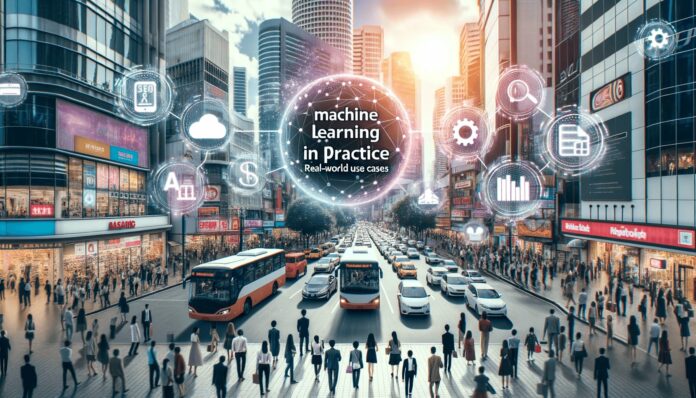Machine Learning (ML) has been a transformative force across a multitude of industries, automating routine tasks, offering intelligent insights, and solving complex problems. This article explores various real-world use cases of machine learning, illustrating its practical implementations and the value it adds to different sectors.
1. Healthcare
Predictive Analytics:
ML powers predictive analytics to forecast patient diseases and conditions, enabling early interventions and personalized treatment plans.
Medical Imaging and Diagnosis:
Machine learning algorithms process medical imaging data to identify abnormalities, aiding in faster and more accurate diagnoses.
Drug Discovery:
ML accelerates the drug discovery process by analyzing vast datasets to identify potential compounds for new drugs.
2. Finance
Fraud Detection:
Machine learning models analyze transaction data in real-time to detect fraudulent activities, enhancing security measures.
Credit Scoring:
ML algorithms assess the creditworthiness of individuals, aiding in more accurate credit scoring and risk assessment.
Algorithmic Trading:
Machine learning models analyze market data to automate trading decisions, maximizing profitability.
3. Retail
Inventory Management:
ML optimizes inventory levels by predicting demand, reducing carrying costs, and improving service levels.
Customer Segmentation and Personalization:
Machine learning enables personalized marketing by segmenting customers based on purchasing behavior and preferences.
Product Recommendation:
ML-powered recommendation systems enhance customer engagement by suggesting products based on past purchases and browsing behavior.
4. Transportation
Autonomous Vehicles:
Machine learning algorithms are the backbone of autonomous vehicle technology, enabling real-time decision-making and navigation.
Traffic Prediction:
ML models analyze traffic data to predict congestion, helping in route optimization and reducing travel time.
Predictive Maintenance:
Machine learning predicts maintenance needs for vehicles and infrastructure, reducing downtime and ensuring safety.
5. Manufacturing
Quality Control:
ML models analyze production data to identify quality issues early, reducing defects and ensuring high-quality products.
Predictive Maintenance:
ML algorithms predict when equipment will fail or require maintenance, minimizing downtime and maximizing efficiency.
6. Energy
Demand Forecasting:
Machine learning models predict energy demand, aiding in efficient energy production and distribution.
Renewable Energy:
ML enhances the efficiency of renewable energy systems by optimizing energy storage and distribution based on predictive analytics.
7. Education
Adaptive Learning:
Machine learning personalizes learning experiences by adapting content to the individual needs and progress of each student.
Automated Assessment:
ML algorithms automate the grading process, providing immediate feedback and saving educators’ time.
